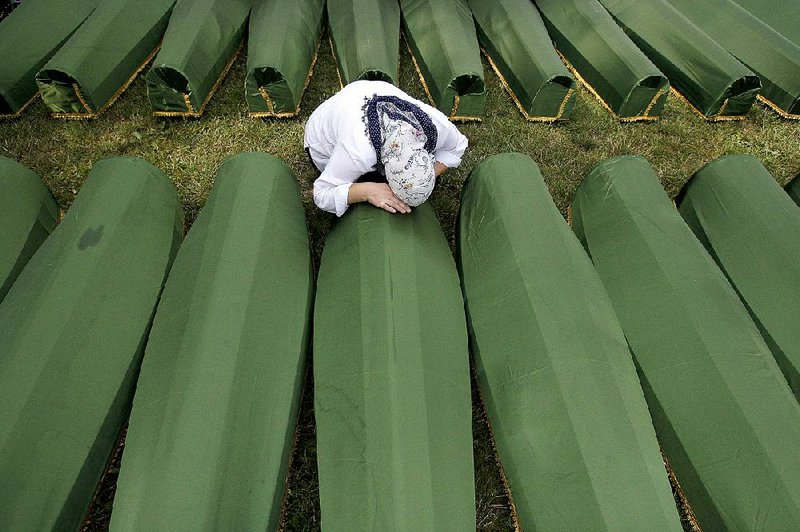LONDON -- Eight men suspected of participating in Europe's bloodiest massacre since World War II have been arrested, prosecutors in Serbia said Wednesday.
The detentions were said to be the first of direct participants in the killing of 8,000 Muslims at Srebrenica in 1995 and represented a widening of the prosecution beyond high-level officials and commanders.
Police officers seized the men in several places across Serbia, and prosecutors accused them of killing more than 1,000 Bosnians at a warehouse in Kravica, near Srebrenica.
Bruno Vekaric, Serbia's deputy war crimes prosecutor, said the case was the first related to people directly involved in the killings.
"We have never dealt with crimes of this magnitude," he said. "It is very important that Serbia take a clear stance toward Srebrenica through the judicial process."
He added, "We have sent a clear message that the Srebrenica victims, perpetrators or even potential war crimes will not be forgotten."
The police had initially put the number of suspects at seven, arrested early Wednesday. But Vekaric later said an eighth man had been arrested during the day in the northern city of Novi Sad.
Police also were said to be pursuing suspects in neighboring countries. Vekaric said five were still at large.
The massacre took place over several days after Serbian forces overran Srebrenica, which was designated as a United Nations "safe haven" under the control of Dutch soldiers during the fighting and ethnic cleansing that marked the breakup of the former Yugoslavia.
Some of the most prominent figures of the era, including the Bosnian Serb leader Radovan Karadzic and his military commander, Ratko Mladic, are standing trial in separate cases at the International Criminal Tribunal for the Former Yugoslavia in The Hague, Netherlands, where they are facing charges including genocide.
Serbian officials said the latest arrests were the first of people accused of killing Bosnians who had been rounded up, their hands bound, before the massacre. They are likely to be tried in Serbia, not in The Hague, Serbian officials said.
In 2007, a war-crimes court in Serbia convicted four Serbian former security officers from a paramilitary unit called the Scorpions of killing six Bosnian men from Srebrenica near the village of Trnovo around the same time as the massacre. But the judge in that trial, Gordana Bozilovic-Petrovic, said there was no evidence to tie the killings to the slaughter in Srebrenica, 90 miles away.
The newest arrests have "already had a major impact on the people here, and it will be very important in the process of reconciliation in the region," said Novak Vuco, a legal officer in the prosecutor's office in Belgrade.
The suspects were to be interviewed Wednesday and today, Vuco said.
"Our priorities now are to conduct the interviews, gather as much evidence as possible, and prepare a steady ground for the trial as soon as possible," Vuco said. "The hope is to have the indictments ready before the June anniversary of the breakup of former Yugoslavia."
"I'm not a politician, but I imagine that this willingness to confront its own past will be a huge step for Serbia on its way to joining the European Union," Vuco said.
Information for this article was contributed by Joanna Berendt of The New York Times.
A Section on 03/19/2015

